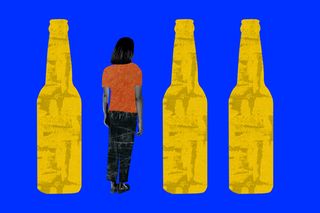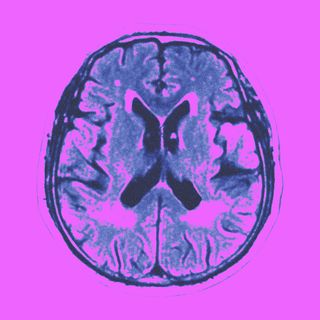
How Childhood Experiences Can Influence People’s Drinking Habits
Compared to men, alcohol use disorder was found to be more common among women who had adverse childhood experiences.

“I almost died from alcohol in my 20s, just from trying to come off of it I went into a massive seizure and stopped breathing after a day of unimaginable hallucinations. I was drowning out a rough childhood with no coping skills, and it snowballed out of control,” noted a Reddit user. According to a new study, their tryst with alcohol abuse resonates with a large number of people who, just like them, also went through difficult experiences as children.
Published in Frontiers in Psychology, the study found that adverse childhood experiences — including enduring physical, sexual, and emotional abuse and neglect, witnessing domestic violence, and other family dysfunctions — made one more prone to excessive drinking, especially during college.
For the study, the researchers recruited more than 4,000 participants with an average age of 22. They were required to fill in two questionnaires. First, an ACE (adverse childhood experience) questionnaire to assess their childhood. Then, an AUDIT (alcohol use disorder identification test) questionnaire to assess how heavily they drank, whether they exhibit any symptoms of addiction, and if they have guilt or injuries associated with drinking.
Upon comparing the ACE and AUDIT scores for each participant, the researchers found an overlap — suggesting that adverse childhood experiences were a predictor of alcohol abuse among young adults.
Related on The Swaddle:
Estrogen May Make Alcohol Consumption Feel More Rewarding to Women: Study
Interestingly, the researchers also stumbled upon sex-specific data, in course of the study. “[T]he relative increase in AUDIT scores based on the increase in ACE scores was more pronounced in female students compared to male students; however the cumulative proportion of drinkers in any ACE category was higher in male students.” In other words, compared to the male participants, the link between ACE and AUDIT scores was stronger among the female participants — despite the baseline drinking between male students being, generally, higher.
A 2002 study had also found that multiple adverse experiences in childhood can also increase one’s likelihood of marrying an alcoholic twofold to fourfold.
Moreover, besides alcoholism, adverse childhood experiences can also make one more prone to struggling with anxiety and depression later in life, research suggests.
“Some children who crave stability, acceptance, and community in their home lives look for it elsewhere among equally toxic influences and start abusing alcohol or other drugs as a means of gaining that sense of acceptance and solidarity… Other children simply fail to recognize, acknowledge, and effectively process this trauma until it manifests in self-destructive ways like self-harm, substance abuse, or the inability to control their emotions,” notes an article exploring the link between alcoholism and childhood trauma.
Related on The Swaddle:
Can We Move On: From the Trope of the Woman Whose Feminism Is Expressed Through Smoking, Drinking
While the association is universally alarming, there’s cause for Indians to be especially concerned. In 2020, a UNICEF study pointed to the occurrence of severe physical, verbal and emotional abuse against children as young as newly-born to six-years-old in India. Despite corporal punishment being effectively banned in India and research suggesting that physical punishment can make children’s behavior worse over time rather than correct any misbehavior, Indian parents and teachers continued to abuse children under the guise of disciplining them. What they don’t realize, though, that their manner of disciplining isn’t just counterproductive, but is also possiblypushing children towards substance abuse as adults.
A study from 2012 — which also explored the existence of adverse childhood experiences among heavy-drinkers — found that emotional trauma from one’s childhood had a stronger bearing on one’s drinking habits as an adult. In comparison, the influence physical was moderate.
But physical punishments are still concerning: they can lead to increased aggression, antisocial behavior, and mental health problems among children, later in life.
Early intervention by mental health professionals is, perhaps, the closest way to prevent childhood trauma from manifesting into alcohol abuse in adulthood. However, in its absence, therapy — and, maybe, psychiatric consultation, too — could be another way to break the cycle.
Devrupa Rakshit is an Associate Editor at The Swaddle. She is a lawyer by education, a poet by accident, a painter by shaukh, and autistic by birth. You can find her on Instagram @devruparakshit.
Related


Study Observes Rapid Aging in Teenagers’ Brain Scans Post‑Lockdown
